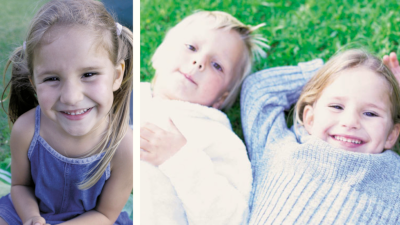What are baby teeth?
Baby teeth are the first set of teeth and are also called milk teeth. Humans are genetically prepared for two dentitions.
When do baby teeth come out?

Baby teeth usually start to appear at around the age of 6 months. A lower central incisor is usually the first to emerge. Three-month-old children may have up to four upper incisors.
A three-year-old should have 20 temporary teeth: 8 incisors, 4 canines and 8 molars. If there is a situation of teeth erupting prematurely, the child should be seen by an expert in paediatric dentistry.
Will these deciduous teeth cause pain?
It can cause some discomfort to the baby and he/she may cry. The baby might experience itching of the gums, high body temperature, anxiety, increasing salivation, and sleeping problems. A six-month baby may show irritability and uneasiness.
What are the symptoms of teething?
Symptoms include swelling of the gums and a hardness or whitish colour. Also, the baby will want to place objects or fingers into the mouth. There is excessive drooling, food refusal, and sometimes the infant may experience fever or ear inflammation. Teething causes high metabolism activity, resulting in these symptoms.
How to ease teething symptoms?
- Gently rub your child’s gums with a clean finger in a gauze pad to ease the symptoms caused by teething.
- Give the infant a gum rubber or soft plastic massager, called a teething ring, bought at a local pharmacy.
- After consulting your paediatrician, you may give your child a mild pain reliever.
How important are these baby teeth?
- It is extremely important for the child, a future adult, to have healthy deciduous . The first set of teeth prepares the following one. The second set of teeth, or permanent dentition, will be influenced and guided by the first teeth.
- A child’s teeth will have an influence on the harmonious development of the upper and lower jaw, defining the face structure.
- Severe infection on a baby tooth will negatively influence the permanent tooth, which can create problems in its development and eruption.
- Baby teeth are very important for the child’s speech development. These teeth are fundamental, as they enable the transition from liquid to solid feeding.
Tooth Decay on a Baby Tooth
Tooth decay may occur at this early stage. The most common cavity will appear on the molars. Due to their physical and functional features, molars are more likely to hold the bacteria that will cause tooth decay.
Tooth decay prevention
For tooth decay prevention, the dentist may recommend the application of resin‐based sealants. Tooth decay treatment for baby teeth is very important. If healthy, these teeth will fall out and naturally be replaced by permanent teeth. After drinking milk, clean your baby’s gums with a moistened gauze pad. Do not put honey or sugar on the pacifier (or dummy), because this will negatively affect your child’s dentition by causing premature tooth decay.
What is the best hygiene for baby teeth?
- The dentist may give recommendations regarding the quantity of toothpaste. There is an appropriate toothpaste for people of all ages.
- Toothbrushes should have soft or medium-hardness bristles. Besides cleaning the gaps that toothbrushes cannot reach, dental floss helps maintain healthy gums.
- Children should be taught to always brush their teeth after eating sweets. Give them good advice about healthy hygiene habits from an early age.
Will pacifier or thumb sucking damage baby teeth?
Some babies start to suck their thumb while still in the womb. Other babies develop this habit afterwards. Thumb-sucking may cause a cross-bite in future teeth, which could lead to aesthetical problems and the need for an orthodontic procedure.
Can antibiotics stain temporary teeth?
Tetracycline may cause stains on baby teeth. Nowadays, there are other products in the composition of antibiotics that will not affect the colour of the first dentition.
Last pdate, July 5, 2025

